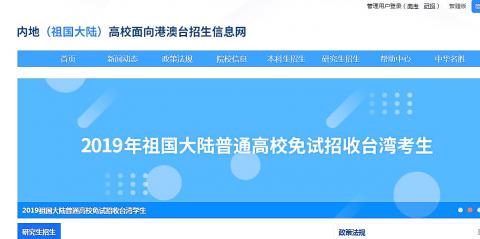Democratic Progressive Party (DPP) Legislator Lee Chun-yi (李俊俋) yesterday pledged to propose an “anti-united front act” based on US legislation to counteract “severe undermining of Taiwanese democratic values” by Chinese “united front” tactics.
Beijing’s tactics include actions such as purchasing Taiwanese produce, promoting travel to counties and cities governed by the Chinese Nationalist Party (KMT) and hosting Kaohsiung Mayor Han Kuo-yu’s (韓國瑜) visit to China last month, Lee said.
The world has recognized the threat of Chinese infiltration, he said, calling on the nation to face the issue.

Screen grab from the Internet
Other nations have enacted legislation to prevent infiltration via finance and media, Lee said.
“As the main target of Chinese infiltration and aggression, it is necessary to establish legislation to counter China’s ‘Anti-Secession’ Law,” Lee said.
Lee said his proposed act would focus on newer “united front” tactics that utilize media and commerce, while allowing extant laws to continue to govern their respective jurisdictions.
Lee said he is still drafting the bill and would reference US legislation, adding that the main difficulty would be defining what constitutes “united front” tactics, while observing the freedoms of speech and movement.
For politicians, short of declaring support for the “one country, two systems” concept, the freedom of speech should be respected, Lee said.
The lawmaker said he envisages creating a cross-agency task force to enforce the law, as the Mainland Affairs Council (MAC) and the National Communications Commission have their own areas of governance.
The National Security Bureau would be best suited for the duty, but it could not answer directly to the Legislative Yuan due to the nature of its responsibilities, Lee added.
In related news, China’s Fujian Province has completed preliminary studies on how to provide power to Kinmen and Lienchang counties, as well as water to Matsu, China’s Taiwan Affairs Office said.
Efforts to provide Kinmen and Lienchang counties with natural gas and the construction of bridges linking the islands to China’s Fujian are being mulled, it added.
Kinmen County Commissioner Liu Tseng-ying (劉增應) on March 20 said that he hoped the 2km bridge between the Huangqi Peninsula and Donggu Atoll (東古礁) would be prioritized.
The MAC has said that the bridge must be assessed and approved by the central government.
China’s policy of the “new four links” — water, electricity, natural gas and bridges — is geared to bring the residents of Kinmen and Matsu over to its side while pressuring the DPP administration, National Sun Yat-sen University professor Lin Wen-cheng (林文程) said.
From Beijing’s perspective, due to the counties’ locations and unique statuses, it could be easier for “united front” tactics to work there than in other counties and cities in Taiwan, Lin said.

AGING: As of last month, people aged 65 or older accounted for 20.06 percent of the total population and the number of couples who got married fell by 18,685 from 2024 Taiwan has surpassed South Korea as the country least willing to have children, with an annual crude birthrate of 4.62 per 1,000 people, Ministry of the Interior data showed yesterday. The nation was previously ranked the second-lowest country in terms of total fertility rate, or the average number of children a woman has in her lifetime. However, South Korea’s fertility rate began to recover from 2023, with total fertility rate rising from 0.72 and estimated to reach 0.82 to 0.85 by last year, and the crude birthrate projected at 6.7 per 1,000 people. Japan’s crude birthrate was projected to fall below six,

Conflict with Taiwan could leave China with “massive economic disruption, catastrophic military losses, significant social unrest, and devastating sanctions,” a US think tank said in a report released on Monday. The German Marshall Fund released a report titled If China Attacks Taiwan: The Consequences for China of “Minor Conflict” and “Major War” Scenarios. The report details the “massive” economic, military, social and international costs to China in the event of a minor conflict or major war with Taiwan, estimating that the Chinese People’s Liberation Army (PLA) could sustain losses of more than half of its active-duty ground forces, including 100,000 troops. Understanding Chinese

US President Donald Trump in an interview with the New York Times published on Thursday said that “it’s up to” Chinese President Xi Jinping (習近平) what China does on Taiwan, but that he would be “very unhappy” with a change in the “status quo.” “He [Xi] considers it to be a part of China, and that’s up to him what he’s going to be doing, but I’ve expressed to him that I would be very unhappy if he did that, and I don’t think he’ll do that. I hope he doesn’t do that,” Trump said. Trump made the comments in the context

SELF-DEFENSE: Tokyo has accelerated its spending goal and its defense minister said the nation needs to discuss whether it should develop nuclear-powered submarines China is ramping up objections to what it sees as Japan’s desire to acquire nuclear weapons, despite Tokyo’s longstanding renunciation of such arms, deepening another fissure in the two neighbors’ increasingly tense ties. In what appears to be a concerted effort, China’s foreign and defense ministries issued statements on Thursday condemning alleged remilitarism efforts by Tokyo. The remarks came as two of the country’s top think tanks jointly issued a 29-page report framing actions by “right-wing forces” in Japan as posing a “serious threat” to world peace. While that report did not define “right-wing forces,” the Chinese Ministry of Foreign Affairs was